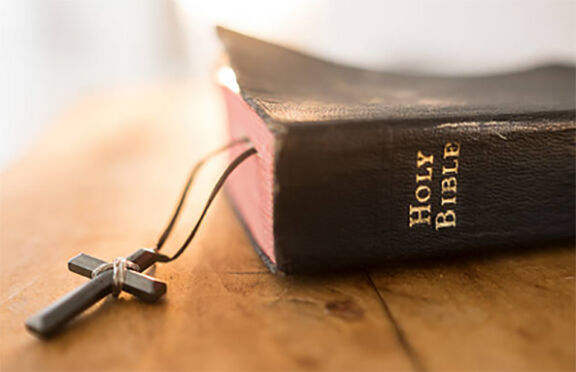COLUMN: ‘The Bible helped slaves to maintain their sanity’ | Pius Kamau
We shine a bright light on Black Americans each February, Black History Month, to remind us that, “there is no American history without African American history;” appreciating the rich history Black Americans embody. February is also Abraham Lincoln’s and Frederick Douglass’ birth month.
I host a podcast, “Never Again,” for CoAGG, Coalition Against Global Genocide and in November, Native American Heritage Month, I conversed with groups of Native Americans about issues not often addressed by America’s majority.
To celebrate Black History Month, Dr. Lee Butler, a new African American president of Iliff School of Theology and I discussed the Black church, religion and faith: before, during and after slavery. I’ve found the depth of Black Americans’ Christian faith, zeal of worship and the large numbers attending Black church services puzzling.
That from slavery on, the Christ slaves prayed to was the same god that empowered their enslavers, Klansmen and later Christian nationalists, struck me as illogical. My silent mental narrative, memory, was of European colonialists’ history of torture, abuse and cruelty in Africa. That and the wanton killings of my tribe, the Kikuyu, by British soldiers during the Mau Mau struggle for independence in Kenya. We viewed Christianity with suspicion and a jaundiced eye.
As his pupil, my interpretation of what I think Dr. Butler said as he elucidated the mystery of Black faith, maybe slightly warped. Just because the Africans were captured and transported across the Atlantic, their gods in Africa and the rituals they practiced were not suddenly erased. Their tribal traditions of worship went underground — away from the masters’ ken. They improvised their religious practice to approximate that in their African homes; praying to a good, kind god; one better than the god of torture and pain in cotton fields. I imagine slaves practicing an African version of Christianity; one suffused with spirits’ mercy, binding kindness, and capacity to reward supplicants with happiness and good health.
The Bible helped slaves to maintain their sanity; like Jewish slaves in Egypt, Exodus stoked their hope for a promised land, giving them strength to see themselves not as property, but as full human beings.
I now see an uncanny similarity between the Christ of Black American slaves, to my Kikuyu tribe’s only god, Ngai or the Yorubas’ and Brazilian slaves’ Orisha. Black Americans, I imagine, ardently worshiped Jesus because in their imagination he resembled the old Yoruba Orisha.
The Black church was the only place slaves met to organize. The rebellions that slaves mounted were hatched and acted upon by church groups. Indeed Nat Turner was a preacher, who became a rebel in 1831. Black education was forbidden by slave owners; yet, it was in the clandestine Black gatherings that many slaves learned how to read and write. The offshoot of what had been nurtured during slavery would in Reconstruction era become schools that taught trades and more formal education.
The Black church was the one place Black people could find solace: during centuries’ long history of slavery, the brief Reconstruction moment after the civil war (1865-1877), followed by the Jim Crow era, the Civil Rights decade of freedom marches and, later, as Blacks found prejudice and racism are a sturdy tree whose roots grow deep in the soil of human souls and hearts.
The pain and suffering Black slaves endured at the hands of their white owners is unimaginable, absolutely unforgettable. Observing Black Americans for several decades, I’ve been impressed by the psychological detritus four centuries of slavery left in Black minds, hearts and bodies. It shows its face all too often on American streets, in homes and in schools. For most Black Americans, the only semblance of counseling or therapy is the Sunday sermon, the singing, the talking in tongues in the Black church that keep Blacks afloat, hopeful for a better world.
My discussion with Dr. Butler served to point out my ignorance; it gave me an understanding of the monumental role the Black church has played in Black folks’ lives. There is neither romance nor heroism in captivity and the Middle Passages were burial grounds for millions. Surviving torture — destruction of body and mind by cruelty and molestation, render the survivors admirable heroes. Blacks in America are heroic, exceptional survivors — like the Jews of Egypt. In February we celebrated their survival, their never giving up on America. As patriots, they fought America’s enemies in every war.
Today they stand in the bright light of freedom.
Pius Kamau, M.D., a retired general surgeon, is president of the Aurora-based Africa America Higher Education Partnerships (AAHEP); co-founder of the Africa Enterprise Group, and an activist for minority students’ STEM education. He is a National Public Radio commentator, a Huffington Post blogger, a past columnist for Denver dailies, and is featured on the podcast, “Never Again.”





